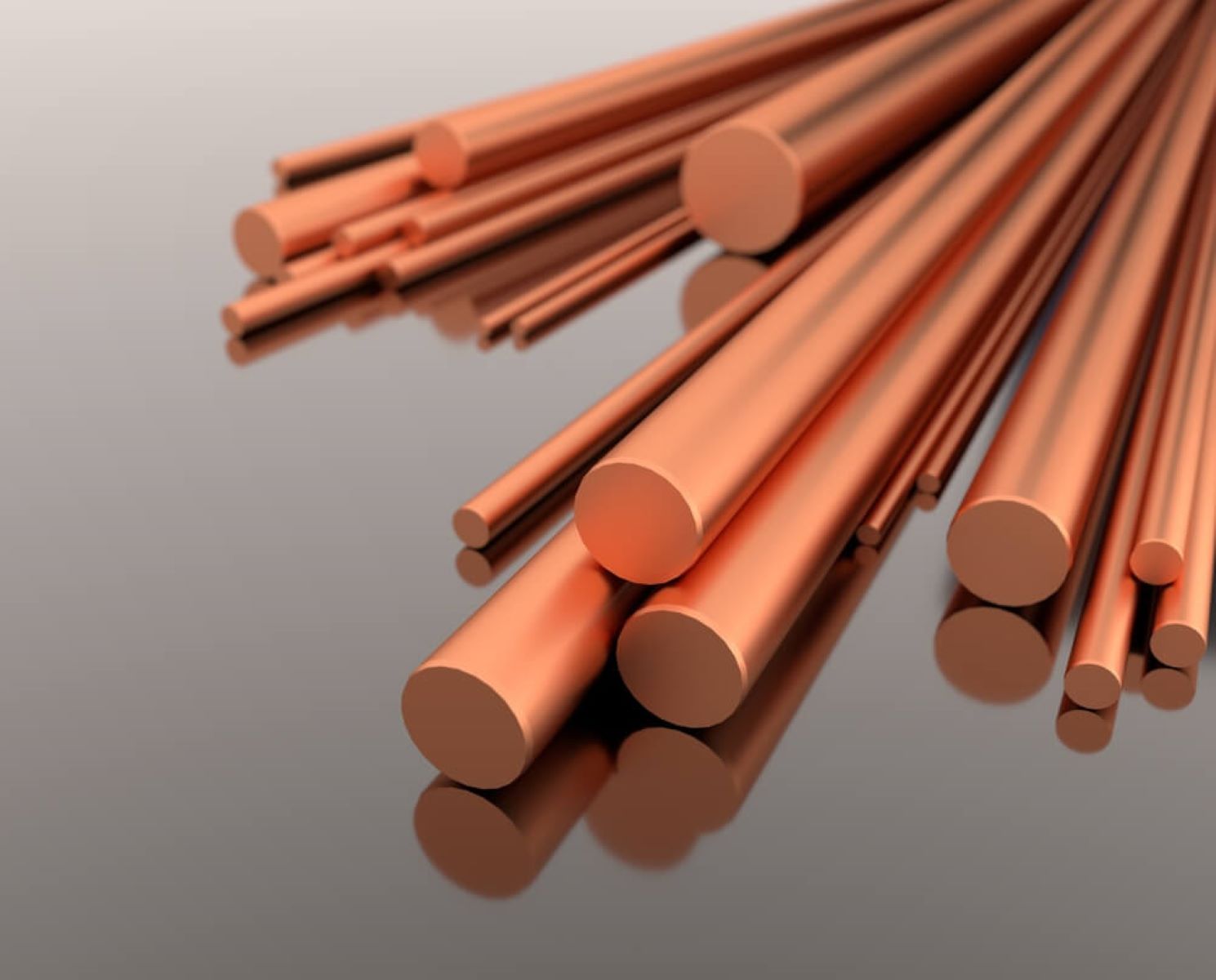
Tellurium Copper is a unique alloy that combines the best of both worlds: the electrical conductivity of copper and the machinability of tellurium. This makes it a favorite in industries where precision and efficiency are key. But what exactly makes this alloy so special? Tellurium Copper boasts enhanced strength, excellent thermal conductivity, and remarkable resistance to wear and corrosion. These properties make it ideal for electrical connectors, switch parts, and even automotive components. Whether you're a student, a hobbyist, or a professional, understanding the benefits and applications of Tellurium Copper can open up a world of possibilities. Ready to learn more? Let’s dive into 40 fascinating facts about this incredible material!
Key Takeaways:
- Tellurium Copper is a unique alloy with 0.5% tellurium and 99.5% copper, making it easier to shape, resistant to corrosion, and ideal for electronics and aerospace applications.
- Ongoing research aims to enhance Tellurium Copper's properties, explore new applications in renewable energy, and develop more sustainable production methods for a promising future.
What is Tellurium Copper?
Tellurium Copper, also known as Copper Telluride, is a copper alloy with a small amount of tellurium added. This combination enhances its properties, making it useful in various applications. Here are some fascinating facts about this unique material.
-
Tellurium Copper Composition: Contains about 0.5% tellurium and 99.5% copper, giving it a unique balance of properties.
-
Improved Machinability: Adding tellurium improves copper's machinability by up to 90%, making it easier to cut and shape.
-
Electrical Conductivity: Maintains high electrical conductivity, around 93% of pure copper, making it ideal for electrical applications.
-
Thermal Conductivity: Excellent thermal conductivity, which is crucial for heat sinks and other thermal management components.
-
Corrosion Resistance: Enhanced resistance to corrosion compared to pure copper, increasing its lifespan in harsh environments.
-
Tensile Strength: Higher tensile strength than pure copper, providing better mechanical performance.
-
Applications in Electronics: Widely used in electronic connectors, switches, and other components due to its electrical properties.
-
Automotive Industry: Utilized in automotive parts like radiators and heat exchangers for its thermal and corrosion resistance.
-
Aerospace Applications: Employed in aerospace components where high strength and conductivity are required.
-
Welding Electrodes: Commonly used in welding electrodes for its excellent electrical conductivity and durability.
Historical Background of Tellurium Copper
Understanding the history of Tellurium Copper provides insight into its development and applications over time.
-
Discovery of Tellurium: Discovered in 1782 by Franz-Joseph Müller von Reichenstein, an Austrian mineralogist.
-
Early Uses: Initially used in small quantities for alloying with other metals to improve their properties.
-
Industrial Revolution: Gained prominence during the Industrial Revolution for its enhanced machinability and conductivity.
-
Modern Applications: Today, it is a critical material in various high-tech industries, from electronics to aerospace.
-
Research and Development: Ongoing research continues to explore new applications and improve the properties of Tellurium Copper.
Physical and Chemical Properties
Tellurium Copper's unique properties make it stand out among other copper alloys.
-
Density: Has a density of approximately 8.94 g/cm³, similar to pure copper.
-
Melting Point: Melts at around 1083°C, slightly lower than pure copper due to the presence of tellurium.
-
Color: Exhibits a reddish-brown color, characteristic of copper alloys.
-
Oxidation Resistance: Better resistance to oxidation compared to pure copper, reducing the formation of copper oxide.
-
Thermal Expansion: Coefficient of thermal expansion is about 17 x 10⁻⁶/K, which is important for thermal stability.
Manufacturing and Processing
The manufacturing and processing of Tellurium Copper involve specific techniques to maximize its properties.
-
Casting: Often cast into ingots or billets for further processing.
-
Extrusion: Extruded into rods, bars, and other shapes for various applications.
-
Cold Working: Can be cold worked to improve its strength and hardness.
-
Heat Treatment: Heat-treated to enhance its mechanical properties and machinability.
-
Surface Finishing: Often finished with coatings or treatments to improve corrosion resistance and appearance.
Environmental and Health Considerations
Like all materials, Tellurium Copper has environmental and health considerations that need to be addressed.
-
Recyclability: Highly recyclable, reducing the environmental impact of its production and use.
-
Toxicity: Tellurium compounds can be toxic, so proper handling and disposal are essential.
-
Regulations: Subject to environmental regulations to ensure safe use and disposal.
-
Sustainable Practices: Efforts are being made to develop more sustainable production methods for Tellurium Copper.
-
Health Precautions: Workers handling Tellurium Copper must use protective equipment to avoid exposure to toxic compounds.
Economic Impact
The economic impact of Tellurium Copper is significant due to its widespread use in various industries.
-
Market Demand: High demand in electronics, automotive, and aerospace industries drives its market value.
-
Price Fluctuations: Prices can fluctuate based on the availability of tellurium and copper.
-
Global Production: Major producers include countries with abundant copper and tellurium resources, such as China and the United States.
-
Trade and Export: Exported globally, with significant trade between major industrial nations.
-
Economic Benefits: Contributes to the economy by providing jobs and supporting high-tech industries.
Future Prospects
The future of Tellurium Copper looks promising with ongoing research and development.
-
Innovative Applications: New applications are being explored in renewable energy, such as solar panels and wind turbines.
-
Material Improvements: Research aims to further enhance its properties, making it even more versatile.
-
Sustainability Efforts: Focus on developing more sustainable production methods to reduce environmental impact.
-
Technological Advancements: Advances in technology may lead to new uses and improved performance of Tellurium Copper.
-
Global Collaboration: International collaboration in research and development will drive innovation and expand its applications.
Final Thoughts on Tellurium Copper
Tellurium copper stands out due to its unique properties. It combines the conductivity of copper with the machinability of tellurium. This makes it a go-to material for electrical applications. Its resistance to corrosion and oxidation adds to its appeal. Industries rely on it for connectors, switches, and other critical components. Its ease of machining reduces production costs and time. This blend of efficiency and performance makes tellurium copper invaluable. Understanding these facts helps appreciate its role in modern technology. Whether you're in manufacturing or just curious, knowing about tellurium copper is beneficial. Its impact on various sectors can't be overstated. From electronics to automotive, its applications are vast. This material truly bridges the gap between functionality and durability. So next time you encounter a high-performance electrical component, there's a good chance tellurium copper is behind it.
Frequently Asked Questions
Was this page helpful?
Our commitment to delivering trustworthy and engaging content is at the heart of what we do. Each fact on our site is contributed by real users like you, bringing a wealth of diverse insights and information. To ensure the highest standards of accuracy and reliability, our dedicated editors meticulously review each submission. This process guarantees that the facts we share are not only fascinating but also credible. Trust in our commitment to quality and authenticity as you explore and learn with us.


